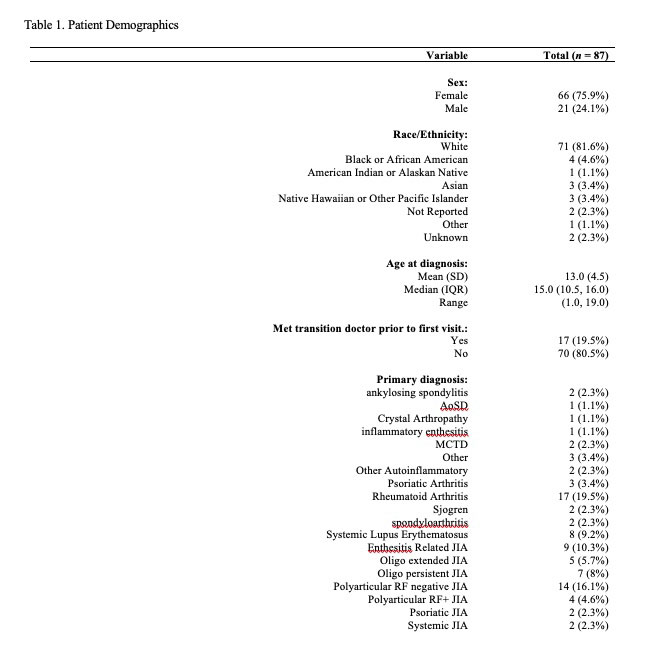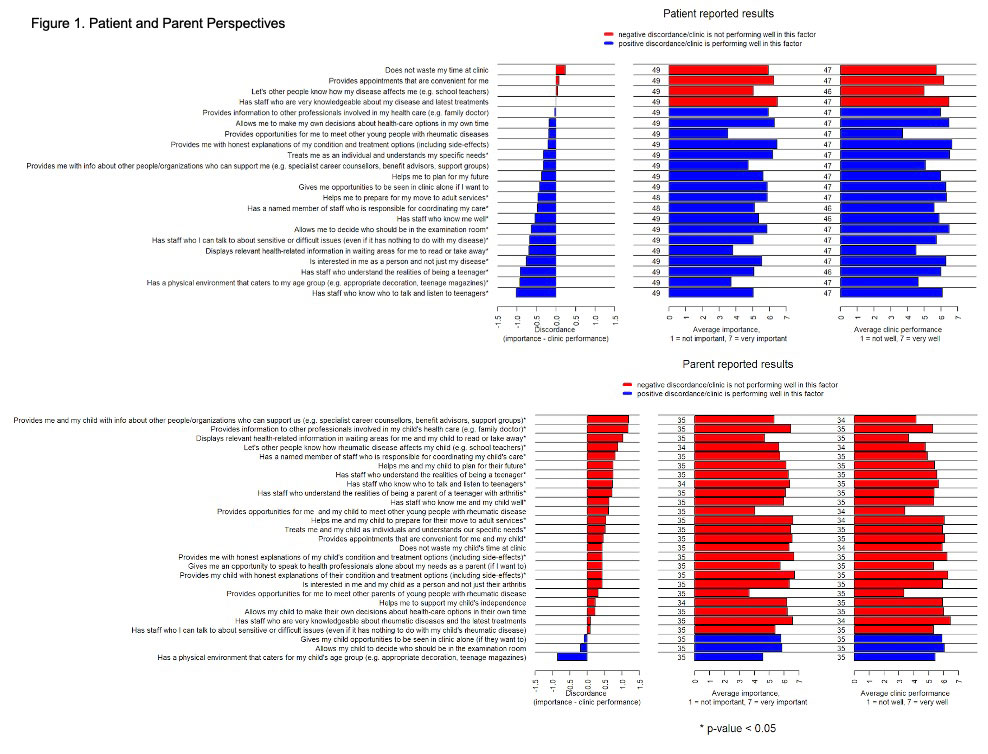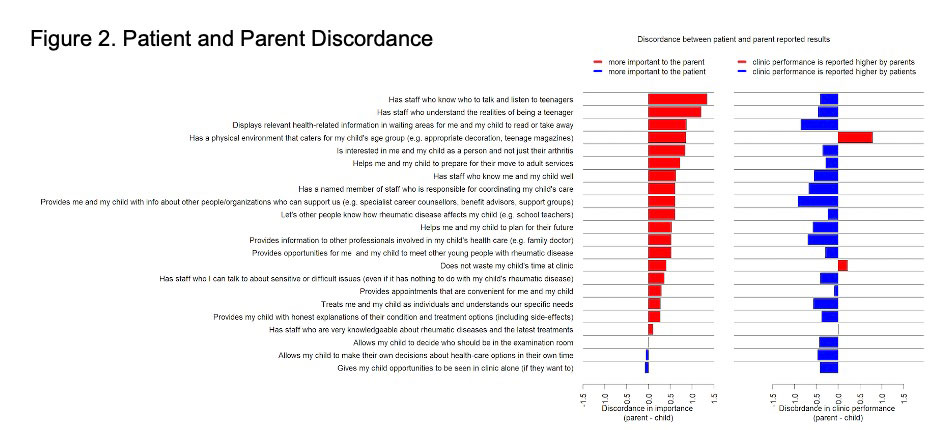Session Information
Session Type: Poster Session D
Session Time: 1:00PM-3:00PM
Background/Purpose: The Adult Center for Childhood Onset Rheumatic Disease (ACCORD) is a clinical and research center for the health care transition (HCT) of adolescent and young adult (AYA) patients with rheumatic disease. It serves to improve the experience and health outcomes for these patients as they transition from a pediatric-centered to an adult-centered clinical home. Here we present the perceptions of our patients and their parents regarding what factors are important in a transition clinic and how well this clinic currently performs these factors.
Methods: Patients and their parents were recruited if they were cared for in the ACCORD clinic and had a rheumatic disease diagnosis. Patients and their parents were asked to complete a Mind the Gap survey via email. This previously validated survey has 44 questions, using 7-point Likert scales to rate 1) the importance of 22 factors in a transition clinic and 2) how well the transition clinic currently performs these 22 factors. Patients and parents completed this survey independently. Survey responses are presented as averages. Discordance between patient and parent responses are provided. Discordance between how well the clinic is performing those factors are provided.
Results: 49 patients completed the survey (Table 1). 35 parents completed the survey. Both identify as valuable factors: knowledgeable staff, honest explanations of disease and therapy options, and autonomy of the patient to decide who is in the exam room and in medical decision making (Fig. 1). Patients identify wasted time in clinic and convenience of clinic times as the most valuable factors with the greatest room for improvement (Fig. 1). Parents identify organizational support and communication inside medical teams as the most valuable factors with the greatest room for improvement (Fig. 1). The greatest discordance in valuable factors between patients and parents are the patient having the opportunity to be seen alone (more important to patients) and having staff who know how to talk to teenagers (more important to parents) (Fig. 3). Compared to patients, parents place less cumulative importance on these 22 factors while also reporting that these factors are currently less well implemented in the clinic (Fig. 1).
Conclusion: We show that patient autonomy, knowledgeable providers, and honest explanations of diagnoses and therapy are important themes for both patients and their parents. Perhaps unsurprisingly, patients value more of these factors than do their parents. However, patients are also more likely to report that the clinic is successfully implementing these factors. This could reflect more familiarity with the clinic (many of these patients attend their visits alone) or a shifting relationship from the parent-provider dyad of a pediatric-centered clinic to a patient-provider dyad of an adult-centered clinic. Interestingly, it is parents who most value a clinic that generally caters to teenagers, while patients most value a clinic that allows for their autonomy and individualism. These findings are valuable qualitative insights for transition clinics caring for AYA patients and should be considered in the customization of HCT for patients and their parents.
To cite this abstract in AMA style:
Overbury R, Eddington D, Sward K, Bohnsack J, Inman C, Stern S, James K, Treemarcki E, Hersh A. Patient and Parent Perceptions of an Established Rheumatology Transition Clinic for Adolescents and Young Adults [abstract]. Arthritis Rheumatol. 2022; 74 (suppl 9). https://acrabstracts.org/abstract/patient-and-parent-perceptions-of-an-established-rheumatology-transition-clinic-for-adolescents-and-young-adults/. Accessed .« Back to ACR Convergence 2022
ACR Meeting Abstracts - https://acrabstracts.org/abstract/patient-and-parent-perceptions-of-an-established-rheumatology-transition-clinic-for-adolescents-and-young-adults/



